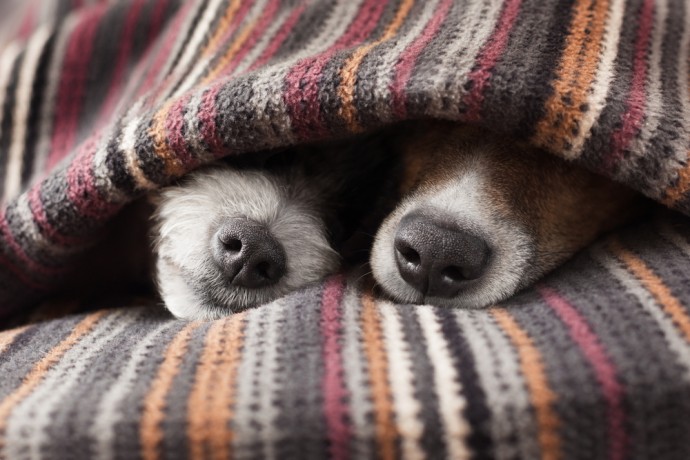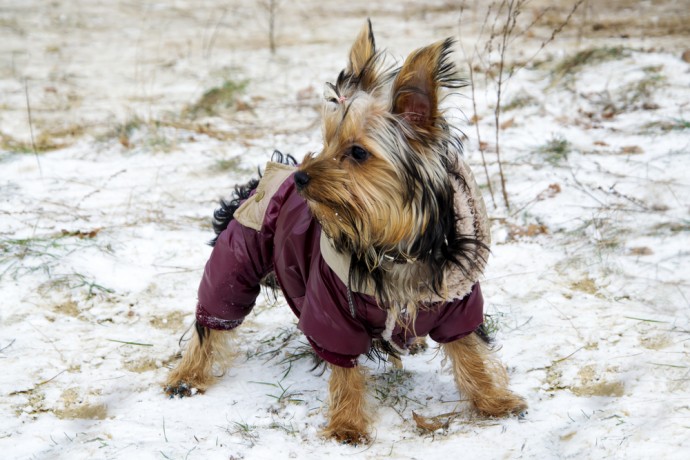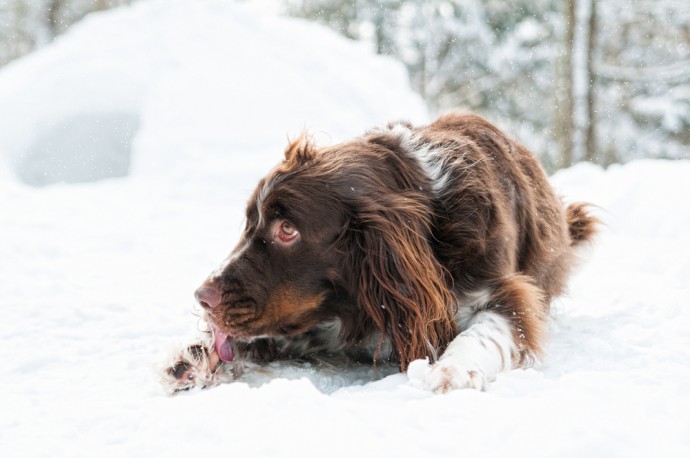Although some pets are better suited to the cold than others, there are still some precautions we need to take as owners to ensure they remain safe and healthy throughout the winter. Here are our top tips…

1. Give your pet a warm place to sleep
There’s nothing better than knowing you have a warm bed waiting for you at home during particularly bitter weather. And the same goes for our four-legged friends! Make sure your pet has a cosy bed to snuggle up on, away from drafts and off the floor. For pets that are especially susceptible to the cold, cover them with an extra blanket or place a hot water bottle (covered by several layers of towels or clothing) beside them.
2. Invest in a dog jacket
Despite being covered in fur; some dogs do need an extra layer when it’s especially cold. A dog coat or jacket is essential for small and short-haired dogs, such as Chihuahuas and Greyhounds, who are more likely to feel the cold than their furrier cousins. Senior dogs and puppies are also more vulnerable so a dog coat or jacket is advisable to keep them healthy throughout the winter.

3. Bathe and dry after being outside
After trips outdoors, always wipe down or wash your pet’s paws and stomach to remove any ice, salt and chemicals they may pick up on the ground, such as antifreeze. This will help keep their paws from becoming raw and chapped, plus it will help warm them pads up faster which is where dogs lose the majority of their body heat through. Dog boots offer great coverage, however not all pets will be happy to wear these! Instead massage paw butter or wax into your furry friend’s pads for some protection from the harsher climate.
4. Avoid the groomers
Fur is regulation winter wear so don’t shave or clip your dog or cats coat during the winter months. If your pet is long-haired, just trim their hair to minimise clinging snow and ice balls.
5. Keep your pet well fed and watered
It takes more energy to stay warm during the winter so feed your pet a little bit more or give them an extra treat on really cold days. Keeping your pet well-hydrated with fresh water is also essential as it can help prevent their skin from drying out. Use plastic or ceramic bowls instead of metal which in low temperatures can see your pet’s tongue stick and freeze to the bowl surface.

6. Keep your pet indoors
Even if your pet is typically an outdoor dweller, avoid letting them out except when necessary. Cats especially when out in cold, snowy weather can freeze or become disoriented and unable to find their back home. Thankfully, the majority of pets enjoy their creature comforts so there shouldn’t be too many complaints!
Don’t leave your four-legged friend in a car during cold weather either. Just as cars can act as ovens during the summer months, in the winter they can become refrigerators, holding in the cold and causing your pet to freeze.
7. Beware antifreeze
Used to keep car engines running in extremely cold weather, antifreeze can often leak from a car’s radiator and is extremely deadly to pets. The smallest sip can be fatal to a cat or dog. The best way to avoid an accident is to keep your pets away from your garage and neighbour’s driveways, and clean up any spillages you may spot. If your pet begins to act drunk or convulse they may have ingested antifreeze so, take them to a vet immediately.

How to check if the cold has affected your pet:
One of the quickest ways to check whether your pet has been affected by the cold is to feel the temperature of their gums. If they’re cold and clammy, it is critical to warm them up as soon as possible and get them to a vet.
